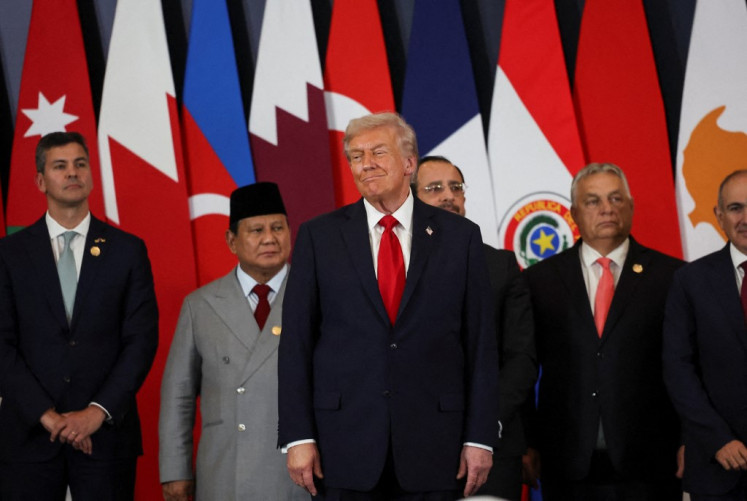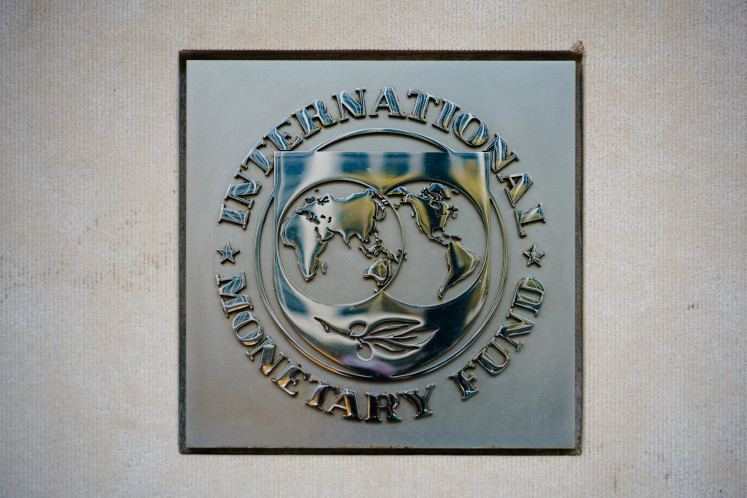Popular Reads
Top Results
Can't find what you're looking for?
View all search resultsPopular Reads
Top Results
Can't find what you're looking for?
View all search resultsRI may become one of six major economies
Indonesia is among six emerging economies that will lead the world’s economy with more than half of all global growth by 2025, according to the latest report issued by World Bank
Change text size
Gift Premium Articles
to Anyone
I
ndonesia is among six emerging economies that will lead the world’s economy with more than half of all global growth by 2025, according to the latest report issued by World Bank.
The other five economies stated in the report, Global Development Horizons 2011—Multipolarity: The New Global, were Brazil, China, India, South Korea and Russia.
“The fast rise of emerging economies has driven a shift whereby the centers of economic growth are distributed across developed and developing economies—it’s a truly multipolar world,” Justin Yifu, the World Bank’s chief economist and senior vice president for development economics, said.
The report projected that as a group, emerging economies would grow on average by 4.7 percent a year between 2011 and 2025. Meanwhile, advanced economies were forecast to grow by 2.3 percent over the same period, “yet will remain prominent in the global economy, with the euro area, Japan, the United Kingdom and the United States all playing a core role in fuelling global growth”.
“As economic power shifts, these successful economies will help drive growth in lower income countries through cross-border commercial and financial transactions,” the Bank said in a press statement along with the release of the report. Emerging market multinationals were becoming a force in reshaping global industry, with rapidly expanding South-South investment and foreign direct investment inflows, Yifu said.
“International financial institutions need to adapt fast to keep up.”
Thanks to its rapid economic growth and its large domestic market, Indonesia has been widely tipped to potentially join the group of major emerging economies known as BRIC (Brazil, Russia, India and China), which have been expected to become the world’s future economic leaders.
“There have been plenty similar forecasts [about Indonesia] by international institutions, and I think they all make sense. But the problem is, to achieve the forecasts, there are requirements,” A. Tony Prasetiantono, an economist at Gadjah Mada University in Yogyakarta, told The Jakarta Post on Tuesday.
Tony cited three issues that Indonesia needed to fix to meet the World Bank’s, and other international institutions’, high expectations, namely building sufficient infrastructure to provide efficiency and boost investment, eradicating corruption and simplifying bureaucracy.
If those three “main issues” for Indonesia were resolved, the nation’s economy would be able to grow at a faster pace, just like heavyweight emerging economies such as India and China, he added. Indonesia’s economy grew by 6.1 percent last year, higher than most nations. However, economists said that if infrastructure bottlenecks were solved, the country might grow by more than 7 percent.
A recent Asian Development (ADB) report said that Indonesia would be among seven Asian nations that would lead the region’s to become a powerhouse that controls half of the world’s economy and output by 2050, together with China, Japan, India, Malaysia, South Korea and Thailand. In forty years three billion Asians were expected to have higher living standards than residents of Europe, the United States and other developed nations, according to the report.

















